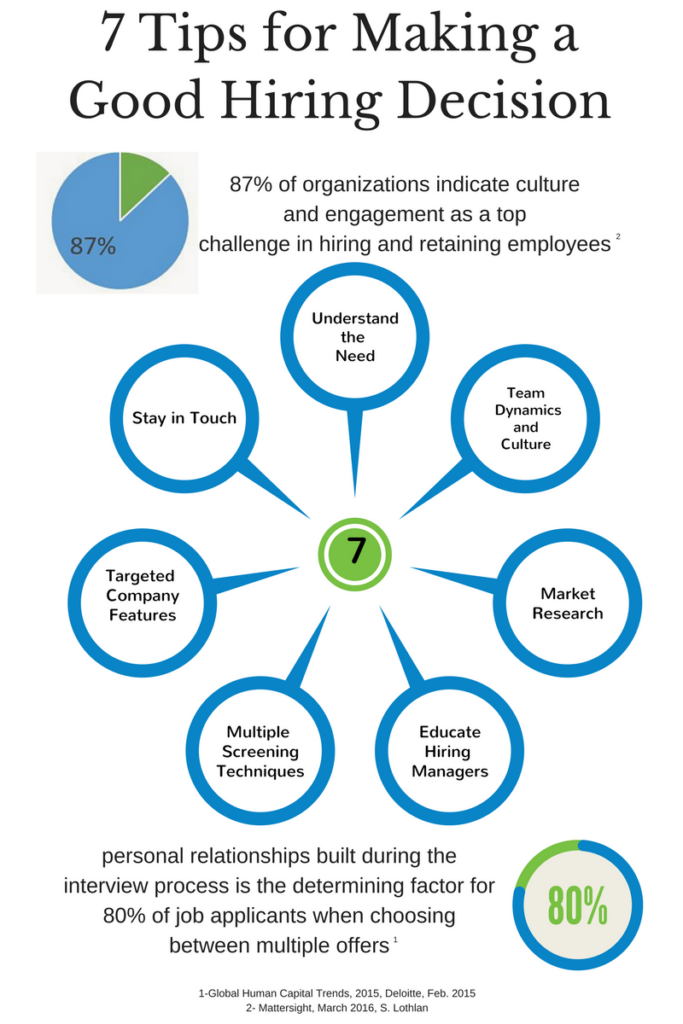Hiring employees is one of the most essential, yet expensive, initiatives of an organization. There are several key components to a successful recruiting effort that can help minimize the risk of making a poor decision when hiring employees. Incorporating these 7 tips into your hiring process can lead you down the best path to select the right employee!

Understand the Need
There is a difference in what you need and what you want when recruiting for a position. Taking the time to differentiate between what you want and what you need can save you a lot of time and money during the recruiting process, and help ensure you hire the right candidate for the job.
Team Dynamics and Culture
Hiring the right candidate means that not only does the new employee possess the skills, abilities, experience, and aptitude you need, but also that they will fit in. Collect information from the hiring manager, as well as team members, to ensure you fully understand the team dynamics and culture.
Conduct Market Research Before Hiring Employees
Know the availability and compensation trends for the type of employee you are looking to hire. Knowing whether you may need to relocate a candidate, if there is a high supply of talent in an area, and what compensation expectations are for such talent will enable you to more effectively recruit for the right employee. In today’s market, you must be competitive to secure top talent!
Educate Hiring Managers
Managers need to understand interview and market trends and techniques. They also need to be in synch with HR and other contacts with whom potential employees interact from your organization. And not that you have ever known a hiring manager who asked an inappropriate interview question, but trust me, they exist! Education is a critical component to effective hiring.
Multiple Screening Techniques
There are a ton of different interview styles and assessment tools available to employers. By using a variety of tools and techniques in the interview process, you can capture a more well-rounded understanding of a candidate. Thus, increasing the likelihood of making a hire who is both a skills and culture fit.
Targeted Company Features
Understand the demographics and needs of the candidates you interview and leverage those to sell your company. For example, if a candidate is primarily concerned with opportunity for advancement; make sure to discuss your company’s tuition reimbursement, succession planning, leadership programs, etc. If a candidate is primarily concerned with having a flexible work schedule, make sure to discuss your company’s options for job sharing, flex schedules, or remote work. If a candidate is most concerned with compensation, selling your company’s gym offerings will be less effective than selling your retirement plan or bonus structure.
Stay in Touch with Candidates
Many candidates decline offers because they don’t feel a connection, don’t build a rapport with interviewers, or don’t feel informed about the hiring process. Keeping in touch with candidates throughout the interview process, especially between the offer and start date, is critical.


